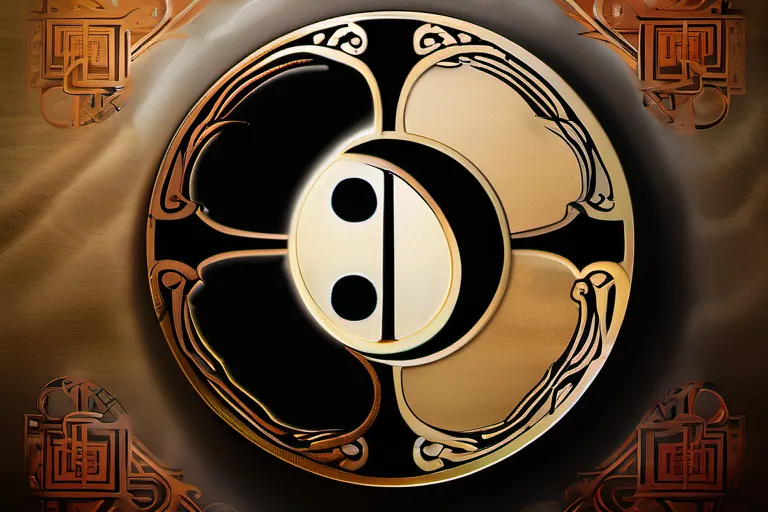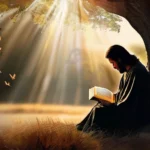Exploring the beliefs and interpretations of reincarnation within the Christian faith
Reincarnation, a concept deeply rooted in Eastern religions, has sparked curiosity among many when it comes to its presence in Christianity. In this article, we delve into the main concepts associated with reincarnation in Christianity and shed light on how these ideas have evolved over time.
The Historical Context
The Historical Context: Explore the beliefs and interpretations of reincarnation within early Christianity, and its interactions with various cultures.
Did early Christian thinkers ever seriously consider the concept of reincarnation? The idea of a soul returning to earth in another body is not as foreign to Christian thought as one might think. Early Christian writers like Origen, for instance, explored the notion that souls could be punished or rewarded through multiple incarnations before achieving salvation.
Could the idea of purgatory have roots in this concept? While it’s widely accepted today that the Church officially rejected reincarnation, early Christian theologians often debated its merits and potential implications on the soul’s journey to eternity.
The historical context is rich with instances where early Christians engaged with and sometimes adapted ideas from neighboring cultures. The mystery religions of ancient Greece and Rome, which often included beliefs in reincarnation, had a significant impact on the intellectual landscape during the time Christianity was taking shape.
How did these influences shape Christian thought? Some scholars argue that early Christians were more open to certain Eastern philosophical concepts than later generations might have believed. The idea of a soul’s journey through multiple lives could be seen as a form of spiritual discipline, allowing for a continuous process of purification and moral improvement.
The debate around reincarnation in early Christianity was complex and multifaceted. While many early Christian thinkers like Origen saw the potential value in exploring these ideas, others, such as Tertullian, staunchly opposed them, viewing them as heretical.
Why did some reject this idea while others embraced it? The conflict often stemmed from theological concerns: if souls were being reborn into different bodies, how did that fit with the notion of a unique and indivisible soul? These questions highlight the dynamic nature of early Christian thought and its ongoing engagement with the broader cultural milieu.
The historical context of early Christianity is crucial for understanding the evolution of beliefs within the faith. As Christianity spread and became more institutionalized, the rejection of reincarnation solidified into official Church doctrine, but this process was not without resistance or internal debate.
What does this tell us about the nature of belief in early Christian communities? The complexity of these interactions reveals a faith that was both adaptable and fiercely protective of its core teachings. The journey from exploration to rejection is a fascinating one that continues to intrigue historians and theologians alike.
Reincarnation in Eastern Orthodoxy
Eastern Orthodoxy, like many other Christian denominations, generally does not support the concept of reincarnation as it aligns more closely with Eastern religious traditions and philosophies rather than traditional Western interpretations of Christianity. However, within its vast theological landscape, there are elements that might be interpreted to touch upon themes related to reincarnation.
Imagine if souls were like seeds, sown in the ground, waiting for their moment to sprout and grow. In this metaphor, the concept of incarnation could be seen as a seed’s journey from one life into another, each time seeking new soil to nurture its growth. But how do Eastern Orthodox theologians view these ideas?
Eastern Orthodoxy places great emphasis on the resurrection of the dead. This belief centers around the idea that at the end of our earthly lives, our souls are reunited with our bodies, and we are judged for our actions in this life. Yet, some argue that the process leading up to resurrection might involve different stages or states, which could be loosely compared to reincarnation.
Consider the parable of the rich man and Lazarus (Luke 16:19-31). This story presents a realm where souls are judged and experience different conditions. Could this be interpreted as a form of existence between lifetimes? While Eastern Orthodoxy does not officially embrace reincarnation, such stories offer fertile ground for contemplation and exploration.
The concept of kenosis, or self-emptying, is another important theological idea in Eastern Orthodoxy. This practice involves letting go of one’s ego to achieve union with God. Could this process be seen as a form of transformation that parallels the idea of reincarnation?
In conclusion, while reincarnation is not a central doctrine within Eastern Orthodox Christianity, its rich theological framework allows for deep spiritual exploration and reflection. The journey of faith in this tradition often involves seeking understanding beyond simple answers, making it an intriguing arena for discussing concepts that are close to, but not quite within, the official teachings.
The Catholic Church’s Stance on Reincarnation
The Catholic Church’s Stance on Reincarnation: Examine the official stance of the Catholic Church regarding reincarnation throughout history.
Could it be that when we discuss reincarnation, we’re delving into a realm where time and soul intertwine like the threads in a tapestry? The Catholic Church has consistently maintained a clear line on this topic, emphasizing the belief in one life after death leading to either heaven or hell. This stance is rooted deeply in the Church’s doctrine, which posits that each person’s journey ends with their final judgment by God.
But what if we dared to imagine a soul wandering through multiple lifetimes, seeking redemption and enlightenment as suggested by some interpretations of reincarnation? Would this not be akin to painting an endless canvas where every stroke is an attempt at understanding the divine will?
The Church’s official line, articulated in documents like the Catechism of the Catholic Church, firmly denies the concept of reincarnation. It states that souls are immortal and do not return after death. This perspective contrasts sharply with beliefs found in Eastern religions where reincarnation is a central tenet.
Yet, within the vast expanse of Christian thought, one can find scholars and thinkers who explore concepts similar to reincarnation. Some argue that theosis, or divine transformation, could be seen as a form of spiritual evolution. But this is distinctly different from reincarnation, focusing on a person’s moral and spiritual development in their current life rather than a transfer between multiple incarnations.
In essence, while the Catholic Church does not officially recognize reincarnation, it opens up space for discussions about our eternal journey and the continuous process of soul growth. Are we not all travelers on this Earth, seeking to understand our place within the greater cosmic tapestry?
Reincarnation in Protestantism
Reincarnation, while largely absent from official Christian doctrine, still finds its way into discussions within Protestantism through various channels. How do different Protestant denominations view this concept? Is it seen as a heretical idea that needs to be avoided, or is there room for interpretation and personal belief?
In many Protestant circles, the concept of reincarnation is often met with skepticism or outright rejection. However, some theologians argue that certain biblical passages can be interpreted in ways that allow for discussions about reincarnation. For example, consider the parable of the rich man and Lazarus in Luke 16:19-31. Is this a reference to the soul’s journey or does it hint at a different existence before death?
The idea of a person’s soul being recycled into another body is a complex one. Some Protestant groups, such as certain branches of Unitarian Universalism, allow for the concept of reincarnation within their broader beliefs about the afterlife and spiritual rebirth. Yet, mainstream Protestant denominations like Lutheranism and Calvinism typically adhere to the belief in a single resurrection at the end of days.
So, what does this mean for individuals who feel drawn to the idea of reincarnation? Are they condemned to believe it’s heretical or can there be a more nuanced understanding within their faith?
The truth is, many Protestant denominations offer a degree of flexibility in how one interprets their teachings. Personal beliefs about reincarnation might align with what one feels resonates most deeply with the spirit of Christian teachings, rather than being strictly bound by literal interpretations.
Modern Interpretations and Debates
Is reincarnation a concept that has ever whispered to you, a secret echo from your past lives? In Christianity, where the soul is seen as immortal and eternal, the idea of reincarnation might seem like a foreign guest at an exclusive party. Yet, discussions and debates about reincarnation within Christian circles are far more complex than one might imagine.
Some theologians and scholars have ventured into the realm of reincarnation, seeking to understand how it can coexist with their faith. Could reincarnation be seen as a second chance, allowing souls to learn from past experiences and grow closer to God? Or is it a concept that might undermine the belief in the final judgment and the unique role of Christ’s sacrifice?
The modern interpretation of reincarnation often brings up questions about predestination. If we believe in reincarnation, do our choices and actions from past lives shape our current journey? Or is everything predetermined by a higher power, making free will just an illusion? These debates are like navigating through a dense forest—every path seems to lead somewhere, but the way forward can be as confusing as it is intriguing.
While many within Christianity reject reincarnation outright, there are those who see it as a bridge, connecting different religions and spiritual practices. This blending of ideas raises questions about religious pluralism and whether all paths truly lead to the same destination. Can we reconcile our belief in one life with the idea that souls might have multiple lives?
The discussions around reincarnation also touch upon themes like personal growth and spiritual maturity. If every soul has the opportunity to return, could this mean that there is an infinite number of chances to learn, grow, and ultimately find salvation? The idea can be both liberating and daunting—freedom to make mistakes, yet the burden of knowing that you have time to correct them.
So, as we explore these debates, let’s not dismiss reincarnation outright. It might just offer a new lens through which to view our own journeys, challenging us to reconsider what it means to be human and how deeply intertwined our past lives are with our present ones.
The Impact of Reincarnation on Christian Beliefs
Have you ever wondered if your soul might have lived before, or if it could continue to exist beyond this life? These questions are often at the heart of conversations about reincarnation, and they intersect intriguingly with Christian beliefs in various ways. Is there any room for reincarnation within the framework of Christianity?
In exploring this idea, one must consider the impact of reincarnation on Christian beliefs. Reincarnation suggests that souls take multiple lifetimes to achieve spiritual growth and enlightenment. This concept challenges traditional Christian views, which focus heavily on the final judgment and eternal destiny after death. How could these two very different ideas coexist?
Some Christians have interpreted biblical stories in a way that allows for reincarnation. For instance, the parable of the rich man and Lazarus (Luke 16:19-31) has been seen by some as an example where souls are aware of each other’s conditions even after death. However, such interpretations often remain in the realm of personal belief rather than official doctrine.
The influence of reincarnation on Christian beliefs can be subtle but significant. For many Christians who embrace this concept, it offers a comforting idea that their souls continue to evolve and learn throughout eternity. This notion can also provide hope for those who have lost loved ones, as they may believe in the possibility of reuniting with them spiritually.
It’s important to note that not all Christian denominations or individuals view reincarnation through the same lens. Some see it as a plausible addition to their faith, while others find it incompatible with the teachings of Jesus Christ and His resurrection. Does this mean that reincarnation is a heretical concept within Christianity?
In conclusion, while reincarnation poses significant challenges to traditional Christian beliefs, it also opens up new avenues for spiritual growth and understanding. The impact of these ideas on Christian thought can be profound, influencing how believers perceive their own existence and the nature of the soul’s journey.
Conclusion
 By understanding the historical context and interpretations of reincarnation within Christianity, we can appreciate the richness and diversity of beliefs that make up this faith. It’s important to remember that while reincarnation is not a central tenet of Christianity, it has played an intriguing role in its development.
By understanding the historical context and interpretations of reincarnation within Christianity, we can appreciate the richness and diversity of beliefs that make up this faith. It’s important to remember that while reincarnation is not a central tenet of Christianity, it has played an intriguing role in its development.











